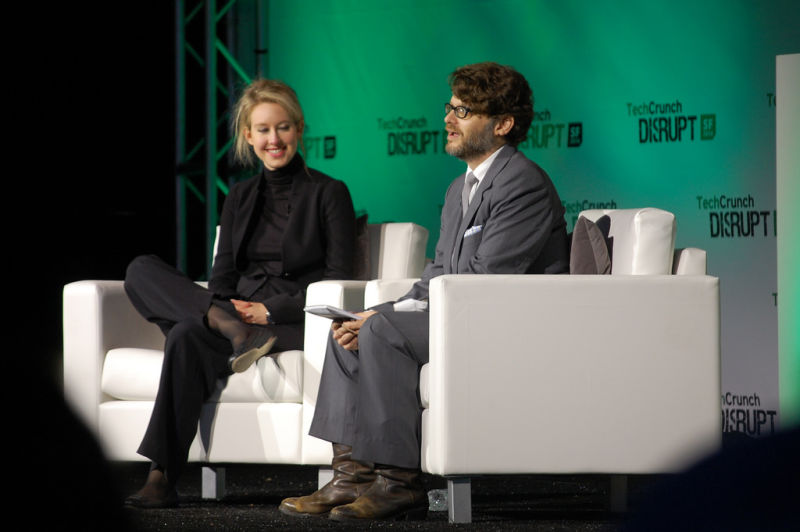Original Story:
The Wall Street Journal on Thursday delivered an unexpected, scathing report on Theranos, the diagnostics startup with its charismatic, young founder Elizabeth Holmes.
For those who aren't familiar with Theranos, the biotech burst onto the scene in 2014, with its bold claim that it could diagnose a variety of diseases with a finger stick that takes just a few drops of blood -- as opposed to a blood draw. Theranos quickly became a media sensation, with its CEO depicted as a young visionary in the pages of New Yorker, Forbes and Fortune.
But some scientists and health writers saw past the hype months ago. They took to their personal blogs and social media to ask some pertinent questions about the science behind Theranos' test, which largely went unanswered. Some requested that Theranos publish peer-reviewed studies to prove the validity of its test.
At health conferences and gatherings, I've heard similar skepticism about Theranos' science and its multi-billion dollar valuation, as well as increasing calls for proof to back up its claims. Theranos has sought FDA approval for its tests, but it has evaded questions about its technology.
As Dr. David Koch, president of the American Association for Clinical Chemistry and a professor at Emory University told Business Insider in April: "It's impossible to comment on how good this is going to be — it may be wonderful and it may bomb, but I really can't be more definitive because there's nothing to really look at, to read, to react to." Theranos' blood test is available in select Walgreens, including in Palo Alto, Calif. and throughout Arizona.
WSJ did dig up some fresh criticisms in its report, primarily from unnamed former employees. Here are some of the key points from WSJ's piece, which is well worth a read:
- Rather than hundreds of tests, the article claims that Theranos can only do fifteen on its Edison machines. Theranos responded that this is false, citing "trade secrets."
- Doctors shared mixed views of Theranos' test. Some say it's convenient as the results arrive in 15 minutes. Others expressed that they couldn't trust the data.
- Theranos doesn't need FDA approval, but it has sought it in order to be rigorous and transparent. But WSJ reporters say they reviewed "internal emails," which suggest that the results may be off. Also, a chart in the article showed how a Theranos blood test result vastly differed from a "hospital result." Theranos responded to say that these fluctuations are commonplace, and due to diet and other lifestyle choices.
- A nurse and doctor interviewed by the WSJ reported abnormal test results after using Theranos' test.
In my view, Theranos' secretive approach is leaving it open to these kind of criticisms. While I appreciate the importance of trade secrets and intellectual property, Theranos says it did provide 1,000 pages of data to WSJ. How about sharing this with other media outlets and/or academics scientists, so they can form their own opinion about the test? And I'm not the only reporter who has expressed this view:

